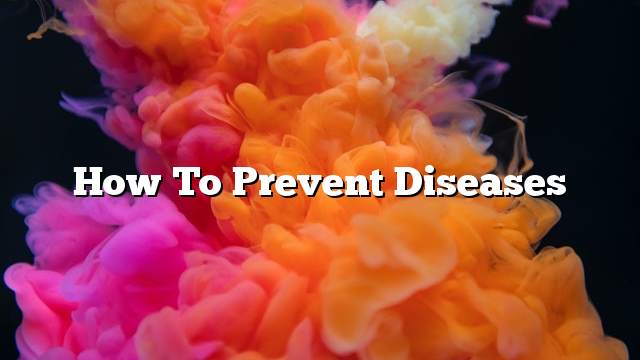Disease is widespread, especially communicable diseases. In any country, if a contagious disease is spread, primary precautions are taken and vaccination campaigns such as polio vaccinations, smallpox and many other vaccinations are initiated to reduce the spread of infection. Early detection of the disease is recommended. Develops, and is treated very quickly before the problem worsens such as stroke or angina.
Disease prevention
Prevention is better than treatment. There are many diseases that are treated, but the patient is not completely cured. There is something that does not have a cure like AIDS, and you must work from the beginning to prevent diseases. To prevent diseases, follow these tips:
- Maintain hygiene and washing hands with soap to get rid of germs and showers, and not touch the eyes or ears or the nose and hands are dilated so as not to move microbes into the body through them.
- Healthy eating, especially washed fruits and well-cleaned vegetables, and drinking water in sufficient quantities to strengthen the body and fight infection, and eating fish once a week, studies have shown that it works to reduce the incidence of heart attacks.
- Do not go to crowded places in the event of any infectious disease.
- Taking enough time to sleep, little sleep makes the body more susceptible to disease.
- Stop smoking to reduce lung disease and cancer due to nicotine.
- Use vegetable oil in cooking instead of obesity and butter; to reduce the incidence of heart attacks and high cholesterol level, washing chicken and meat well and using separate chopping boards for meat and vegetables.
- Coffee reduces the risk of bowel cancer and paralysis.
- Exercise daily as a walking sport or any sport that makes the body sweats and works to increase the heartbeat to reduce the incidence of heart disease and strengthen bones to reduce the incidence of fractures.
- You should maintain the ideal weight and stay away from obesity.
- Do not share personal objects such as towels, razors, and toothbrushes to avoid transferring bacteria from one person to another.
- The mouth must be covered when coughing or sneezing for non-spread of germs.
- Inoculation of children at the beginning of their lives to reduce their infection.
- Be cautious of non-grafted and unclean animals and do her bath work constantly and make sure there are no fleas and do not carry them to contagious diseases.
- Follow up the news regularly to take recommended action in the event of a specific disease outbreak or travel to another country.
